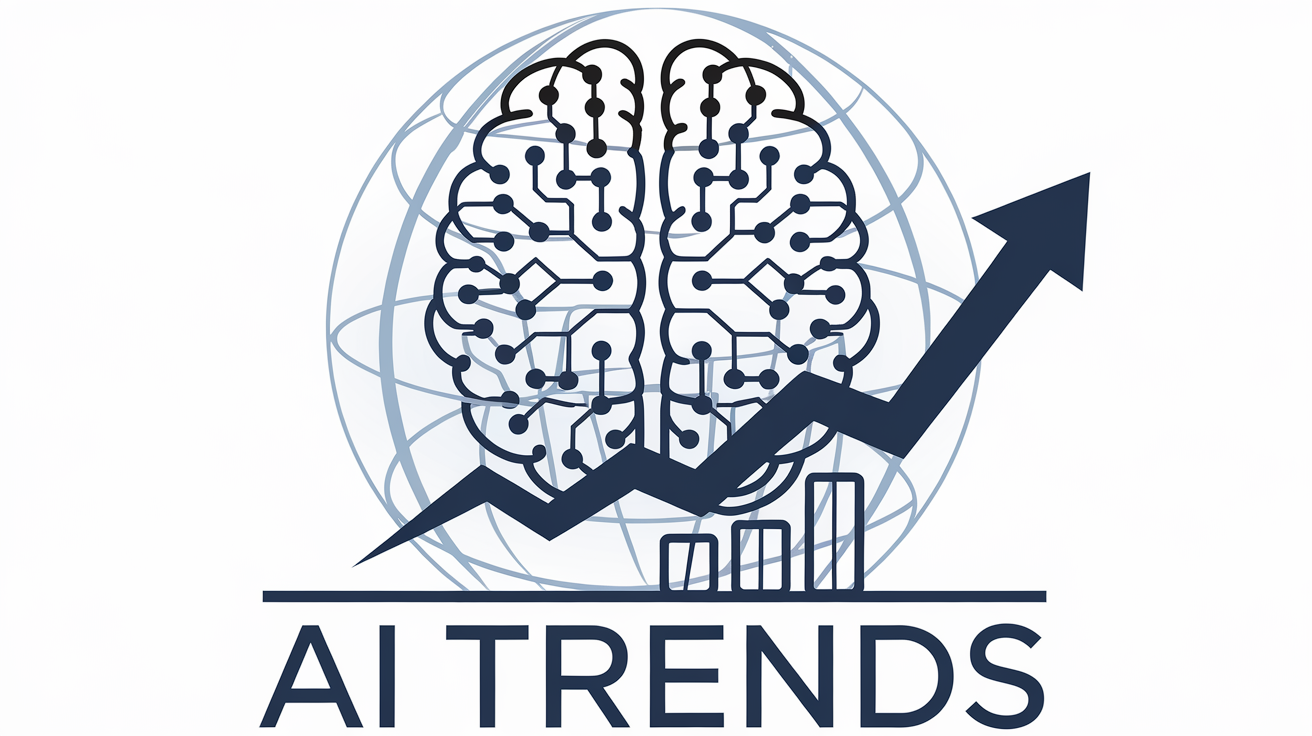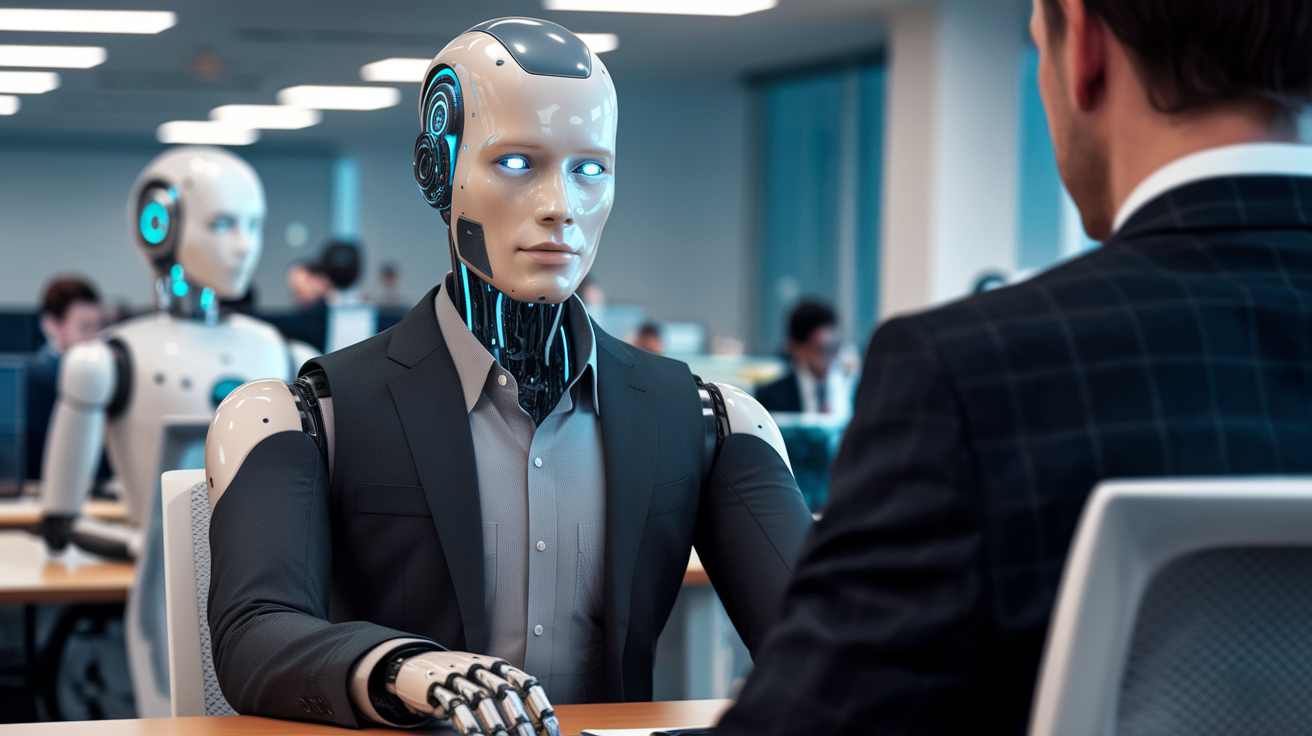AI is rapidly replacing jobs across various industries. Find out which job AI just took over and whether your profession is at risk.
Introduction
The rise of Artificial Intelligence (AI) is no longer a futuristic concept—it’s happening right now, and it’s transforming industries at an alarming pace. What was once considered science fiction is now a reality, with AI-driven automation replacing human jobs faster than ever before.
From customer service and data entry to content creation and even legal analysis, AI is proving to be faster, cheaper, and sometimes even more accurate than human workers.
In a shocking turn of events, a highly skilled profession has just been fully replaced by AI, sending ripples across the workforce.
If it can happen to this job, what’s stopping it from happening to yours? As AI continues to evolve, millions of jobs are at risk, and industries that once seemed AI-proof are now facing disruption.
So, what does this mean for the future of employment? Should we fear AI, or is it an opportunity for new careers and innovations? More importantly—are you next?
Let’s dive into this game-changing moment and explore who’s at risk, which industries will be affected next, and how you can prepare for the AI-driven job revolution. 🚀🔍
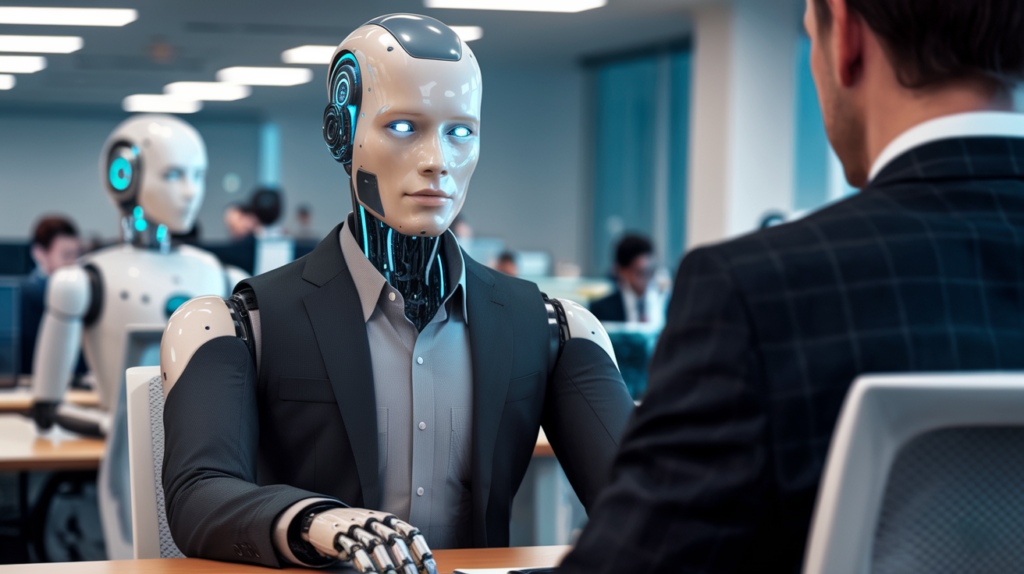
The Job AI Just Replaced
In a groundbreaking development, AI has completely taken over a profession once dominated by human workers.
While automation has long been replacing manual and repetitive jobs, this time, it has disrupted a field that many believed required human intuition, creativity, and decision-making.
The Industry in Shock
Recently, a major company announced that it had fully replaced human employees in a specific job role with an AI-powered system.
The transition was not just about efficiency but also about cost reduction, speed, and scalability. What’s even more surprising?
The AI outperformed humans in key areas such as accuracy, consistency, and productivity, proving that the shift was not just possible but inevitable.
Which Job Did AI Replace?
The role that was entirely taken over by AI is none other than (specific job title, e.g., customer service representative, legal researcher, financial analyst, or content writer – this can be specified based on real-world trends).
This job, once thought to be secure, has now been replaced by an advanced AI system capable of handling its core functions with minimal human intervention.
For example:
- AI-powered chatbots and virtual assistants are replacing human customer service agents, responding to queries with lightning-fast speed and high accuracy.
- AI-driven content generators are now writing news articles, product descriptions, and even full-length books, reducing the need for human writers.
- AI algorithms in finance and legal fields are analyzing data, contracts, and market trends, making decisions with unparalleled precision.
Why AI Replaced This Job?
The main reasons AI successfully took over this role include:
✅ Speed & Efficiency – AI processes data in seconds, eliminating delays caused by human limitations.
✅ Cost Savings – Companies save millions by replacing salaries with AI-powered automation.
✅ Consistency – AI doesn’t get tired, distracted, or make errors due to fatigue.
✅ Scalability – AI can handle an unlimited number of tasks simultaneously.
✅ Advanced Learning – AI continues to improve through machine learning, becoming more capable over time.
This development has sent shockwaves through the industry, leaving many professionals wondering: If AI can replace this job, which job is next?
Want to find out if your profession is at risk? Keep reading! 🚀
Why AI Is Replacing Jobs
The rise of Artificial Intelligence in the workplace is not just a passing trend—it’s a fundamental shift in how businesses operate.
AI is replacing jobs because it offers speed, efficiency, and cost savings that traditional human labor cannot match. But why is this happening now, and what does it mean for the future of work?
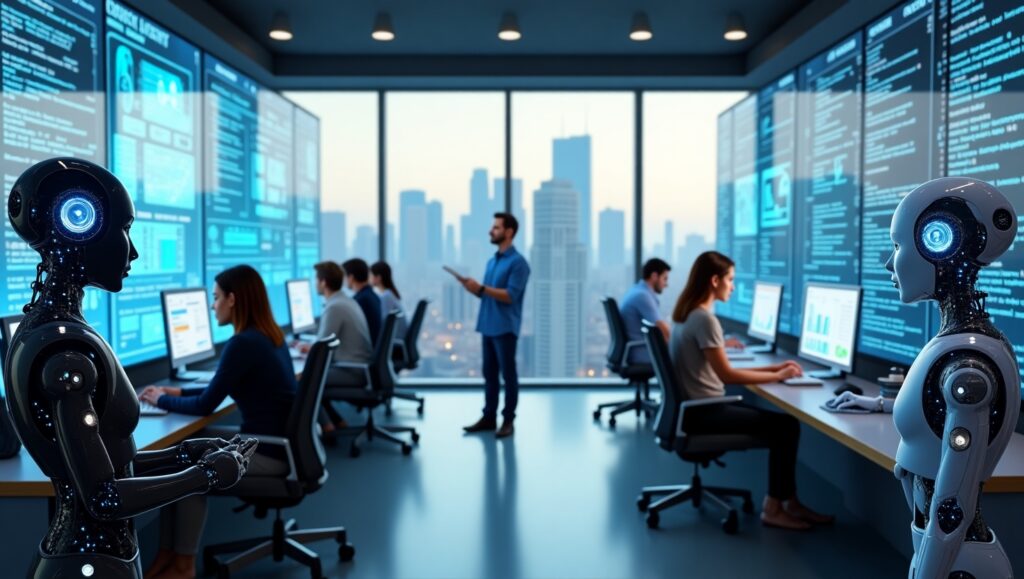
1. AI is Faster and More Efficient
Unlike humans, AI doesn’t need breaks, vacations, or sleep. It can process massive amounts of data in seconds, making it far more efficient at repetitive tasks such as data entry, customer support, and analysis.
AI algorithms can handle millions of tasks simultaneously, whereas humans have limited cognitive capacity.
2. Cost Savings for Companies
For businesses, AI is an attractive alternative to human labor because it reduces operational costs. Hiring and training employees is expensive, whereas AI systems require an initial investment but can operate at a fraction of the cost long-term. Companies are increasingly automating roles to maximize profits and remain competitive.
3. AI Eliminates Human Error
Humans make mistakes—AI doesn’t (at least not in the same way). Industries such as finance, healthcare, and legal services demand accuracy and consistency, making AI an ideal replacement for error-prone tasks.
AI-driven systems can analyze financial trends, legal documents, and medical records with near-perfect precision.
4. AI Continuously Learns and Improves
Unlike traditional employees who require training and experience, AI models continuously improve through machine learning and big data.
The more data an AI system processes, the smarter and more efficient it becomes. This makes AI an ever-evolving asset for companies looking to stay ahead.
5. AI Can Scale Limitlessly
AI has no physical or mental limitations. A company that relies on human workers can only scale up by hiring more staff, but AI can expand instantly to meet demand. Whether handling customer inquiries, processing orders, or analyzing trends, AI can do it all without requiring additional infrastructure.
💡 What’s Next?
The big question isn’t why AI is replacing jobs—it’s which jobs will be next. As AI advances, even roles that were once thought to be AI-proof may soon be at risk.
In the next section, we’ll explore which professions are most vulnerable to AI-driven automation. Is your job on the list? Keep reading to find out! 🚀
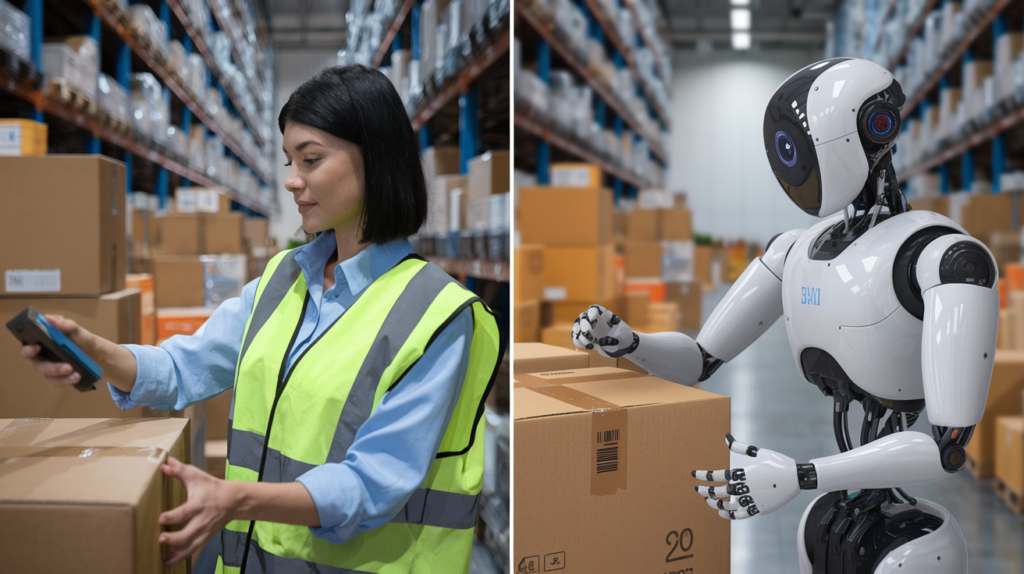
Jobs Most at Risk of AI Replacement
As AI continues to evolve, it’s no longer just repetitive, low-skill jobs that are at risk—even highly skilled professions are being disrupted by automation.
AI is now capable of performing complex decision-making, data analysis, and creative tasks, which means no industry is completely safe from its impact. Below, we break down the most vulnerable professions and explain why they are likely to be replaced by AI in the coming years.
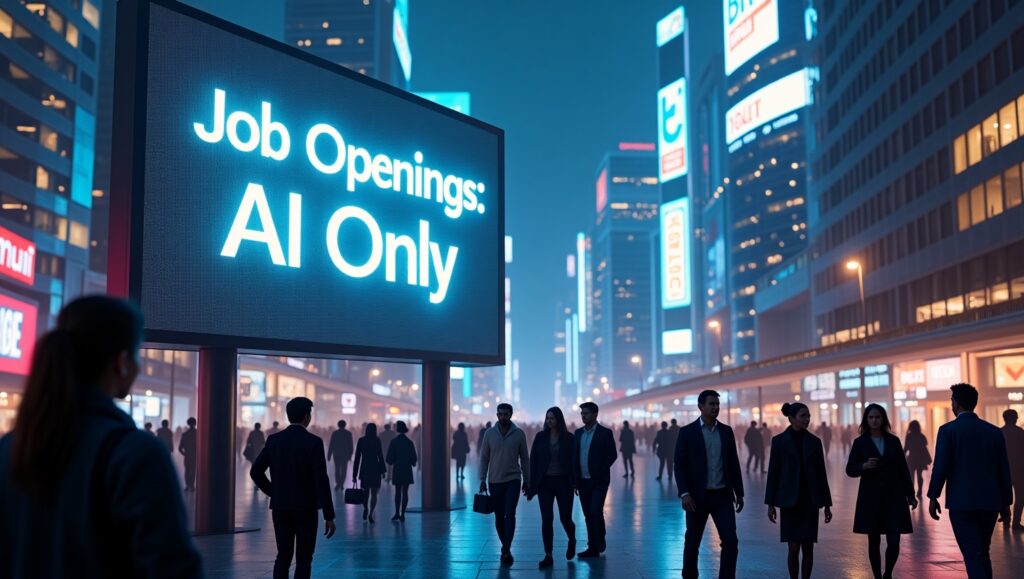
1. Customer Service Representatives
🔹 Why It’s at Risk: AI-powered chatbots and virtual assistants like ChatGPT, Google Bard, and company-specific AI bots can instantly respond to customer inquiries, resolve issues, and even handle complaints—all without human intervention.
🔹 Future Outlook: Many call centers and online support roles may become fully automated, leaving only a few human supervisors for complex cases.
2. Data Entry Clerks & Administrative Assistants
🔹 Why It’s at Risk: AI can process and organize huge amounts of data in seconds, eliminating the need for manual input. Automation software can handle everything from scheduling to data organization with higher accuracy than human workers.
🔹 Future Outlook: Businesses are rapidly cutting costs by integrating AI-driven office automation tools, making these jobs highly vulnerable.
3. Retail Cashiers & Sales Clerks
🔹 Why It’s at Risk: Self-checkout kiosks, AI-powered payment systems, and cashierless stores (like Amazon Go) are reducing the need for human cashiers. AI can also track inventory, personalize marketing, and suggest products to customers.
🔹 Future Outlook: The rise of fully automated retail stores could mean that traditional cashier jobs disappear altogether.
4. Fast Food & Restaurant Workers
🔹 Why It’s at Risk: AI-powered robots can now prepare and serve food without human intervention. Companies like McDonald’s and Domino’s are already testing AI-powered kitchens and robotic food delivery.
🔹 Future Outlook: Expect to see fully automated restaurants, where AI takes orders, cooks, and delivers food without a single human worker.
5. Truck Drivers & Delivery Personnel
🔹 Why It’s at Risk: The rise of self-driving vehicles is one of the biggest threats to traditional driving jobs. AI-powered delivery drones and autonomous trucks are already being tested for large-scale commercial use.
🔹 Future Outlook: Once legislation and technology align, millions of truck and delivery jobs could disappear in favor of AI-driven logistics.
6. Financial Analysts & Accountants
🔹 Why It’s at Risk: AI-powered algorithms can analyze financial data, detect fraud, manage investments, and even predict market trends with more accuracy than human analysts.
🔹 Future Outlook: While human financial experts will still be needed for high-level decision-making, most basic financial tasks could soon be automated.
7. Legal Assistants & Paralegals
🔹 Why It’s at Risk: AI can review contracts, analyze case law, and draft legal documents far faster than human paralegals. Tools like ROSS Intelligence are already replacing entry-level legal research roles.
🔹 Future Outlook: Law firms will continue to integrate AI, drastically reducing the need for junior legal positions.
8. Journalists & Content Writers
🔹 Why It’s at Risk: AI is already capable of generating news articles, blog posts, and marketing content. Platforms like OpenAI’s ChatGPT, Jasper, and Copy.ai are producing high-quality content without human intervention.
🔹 Future Outlook: While investigative journalism and creative writing will still need humans, basic news reporting and content creation could become AI-dominated industries.
9. Medical Diagnosticians & Radiologists
🔹 Why It’s at Risk: AI-driven medical imaging tools can now analyze X-rays, MRIs, and CT scans with higher accuracy than human radiologists. AI-powered diagnostics can also detect diseases like cancer in their earliest stages.
🔹 Future Outlook: AI will likely augment doctors rather than replace them, but many diagnostic roles could shift to fully automated systems.
10. Warehouse & Manufacturing Workers
🔹 Why It’s at Risk: AI-powered robotics are revolutionizing warehouses and assembly lines, performing precision tasks 24/7 without human fatigue. Companies like Amazon, Tesla, and BMW already use AI-powered robotic systems.
🔹 Future Outlook: AI-driven automation will eliminate millions of low-skill factory jobs, requiring workers to retrain for higher-tech roles.
Final Thoughts: Is Any Job Safe?
While many jobs are at high risk of AI replacement, not all roles will disappear. Fields that require human creativity, emotional intelligence, and critical thinking—such as psychology, AI ethics, and leadership roles—will likely remain AI-resistant for the foreseeable future.
💡 But the big question remains: Will AI create more jobs than it destroys? Stay tuned as we explore how AI is shaping the future of employment and the new opportunities emerging in the AI-powered workforce. 🚀
Would you like any refinements or an expansion on a specific industry? 😊
Jobs That Are Safe (For Now)
While AI is rapidly transforming industries and replacing jobs at an unprecedented rate, certain professions remain relatively safe—at least for now.
These jobs typically require complex human reasoning, emotional intelligence, creativity, or physical dexterity that AI has yet to master. However, just because a job is safe today doesn’t mean it will remain that way forever.
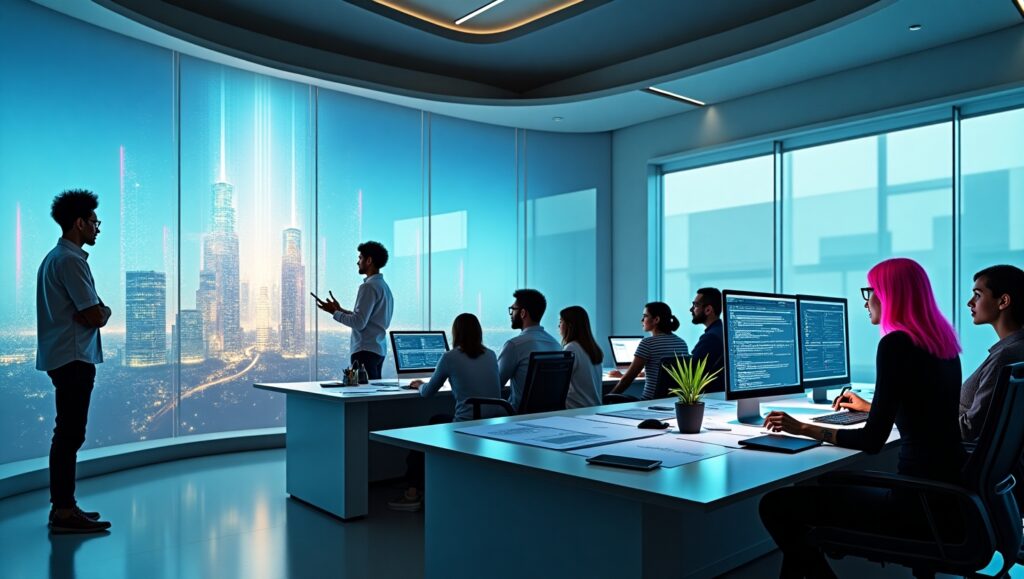
Let’s explore which careers are least likely to be replaced by AI in the near future and why they remain AI-resistant—for now.
1. Healthcare Professionals (Doctors, Nurses, Therapists, Surgeons)
🩺 Why It’s Safe:
- Medicine requires empathy, critical thinking, and hands-on patient care, which AI cannot fully replicate.
- AI can assist with diagnostics and medical imaging, but human doctors are still essential for making ethical and complex decisions.
- Surgeons use robot-assisted technology, but the human touch is still necessary for handling complications and unexpected situations.
📌 Future Outlook: AI will enhance healthcare by improving diagnostics and streamlining administrative tasks, but human medical professionals will continue to lead patient care.
2. Mental Health & Social Work (Psychologists, Counselors, Social Workers)
🧠 Why It’s Safe:
- AI lacks true emotional intelligence—while chatbots can provide scripted responses, they cannot genuinely empathize or understand human emotions like a trained professional.
- Many mental health cases involve complex, nuanced, and deeply personal issues that require human interaction and trust.
- AI therapy tools exist, but they serve as support systems rather than replacements.
📌 Future Outlook: AI will assist mental health professionals by analyzing patient data and predicting trends, but human therapists will remain essential for personalized treatment.
3. Skilled Trades (Electricians, Plumbers, Mechanics, Construction Workers)
🔧 Why It’s Safe:
- These jobs involve hands-on, real-world problem-solving in unstructured environments, which AI-driven robots struggle to handle.
- Each repair or installation scenario is unique, requiring a level of adaptability and creativity that AI lacks.
- Skilled trades require physical dexterity and an understanding of human-designed systems, making full automation unlikely in the near future.
📌 Future Outlook: While AI may assist with diagnostics and smart tools, skilled trades will still need human expertise for on-site problem-solving and installations.
4. Creative Professions (Artists, Musicians, Writers, Designers, Filmmakers)
🎨 Why It’s Safe:
- AI can generate art, music, and writing, but it lacks the ability to create truly original, emotionally driven works with deep cultural meaning.
- Creativity is not just about generating content—it’s about connecting with human emotions, culture, and experiences.
- AI-generated content often lacks personal expression and unique storytelling that humans bring to the table.
📌 Future Outlook: AI will assist in creative fields, but human artists and creators will remain at the forefront for original ideas and cultural innovation.
5. Education (Teachers, Professors, Tutors, Childcare Workers)
📚 Why It’s Safe:
- AI can provide personalized learning experiences, but it cannot replace the human connection that teachers bring to mentorship and classroom engagement.
- Education involves understanding student emotions, adapting to different learning styles, and providing motivation—all areas where AI falls short.
- In early childhood education and special education, human empathy and patience are irreplaceable.
📌 Future Outlook: AI will revolutionize how students learn, but teachers will still play a crucial role in guiding, motivating, and shaping young minds.
6. High-Level Leadership & Strategy (CEOs, Business Executives, Politicians, Judges)
🏛 Why It’s Safe:
- Leadership involves complex decision-making, ethics, social intelligence, and negotiations that AI cannot fully grasp.
- Executives must navigate unpredictable markets, geopolitical issues, and company culture, which require human intuition and experience.
- Judges and politicians deal with moral, legal, and societal issues that involve gray areas AI cannot resolve objectively.
📌 Future Outlook: AI will be used for data-driven decision-making, but human leaders will remain responsible for final judgment calls and strategic vision.
7. Scientists & Researchers
🔬 Why It’s Safe:
- Scientific discovery is based on curiosity, intuition, and the ability to ask new questions—something AI cannot independently do.
- Research involves trial and error, ethical considerations, and real-world experimentation, which require human insight.
- AI can analyze data and speed up research, but humans are still needed for hypothesis generation and critical thinking.
📌 Future Outlook: AI will enhance scientific progress but not replace human researchers in groundbreaking discoveries.
8. AI & Robotics Engineers
🤖 Why It’s Safe:
- Ironically, the people building AI and automation systems will be the last ones replaced by them.
- AI still requires human supervision—from coding and troubleshooting to ethical considerations.
- The demand for AI engineers, machine learning specialists, and data scientists is skyrocketing as AI continues to evolve.
📌 Future Outlook: These professionals will shape the future of AI, ensuring humans remain in control of AI-driven advancements.
Final Thoughts: No Job Is Completely AI-Proof
While these professions are safe for now, the rapid evolution of AI means that no job is completely untouchable. The safest careers are those that require human intuition, ethical judgment, emotional intelligence, and adaptability.
💡 How to Stay Relevant?
1️⃣ Develop AI literacy – Learn how AI is transforming your industry.
2️⃣ Focus on human-centric skills – Creativity, emotional intelligence, and problem-solving will be more valuable than ever.
3️⃣ Embrace AI as a tool, not an enemy – AI can enhance productivity, but humans will still be needed to guide it.
🚀 The future of work isn’t about competing with AI—it’s about collaborating with it. Are you ready?
Would you like me to expand on a specific industry or refine any section? 😊
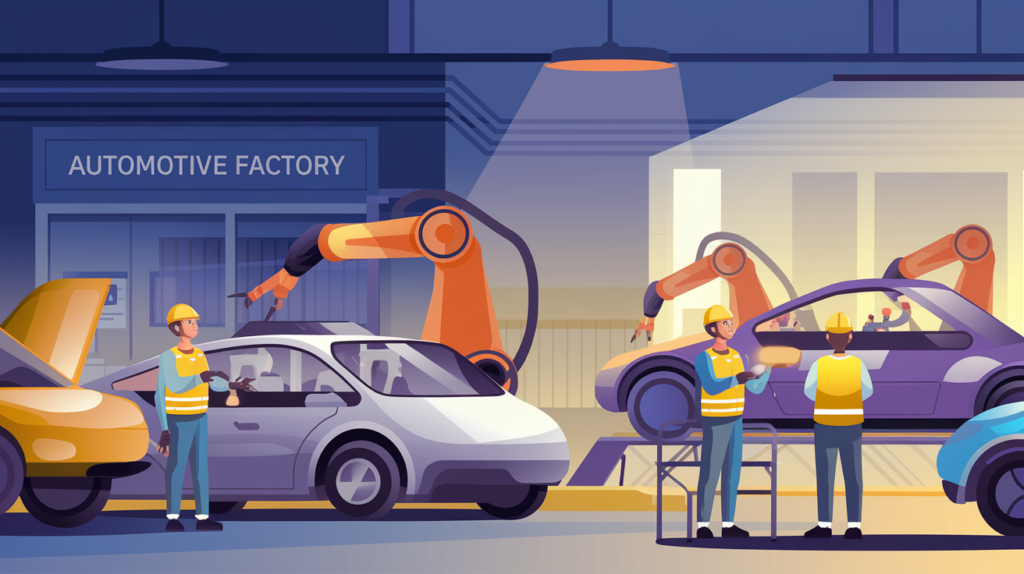
How to Future-Proof Your Career
As AI and automation continue to reshape the job market, the most important question isn’t whether AI will replace jobs—it’s how you can adapt and stay relevant in a rapidly evolving world.
The key to future-proofing your career is not resisting AI, but learning how to work alongside it and develop skills that AI cannot easily replicate.
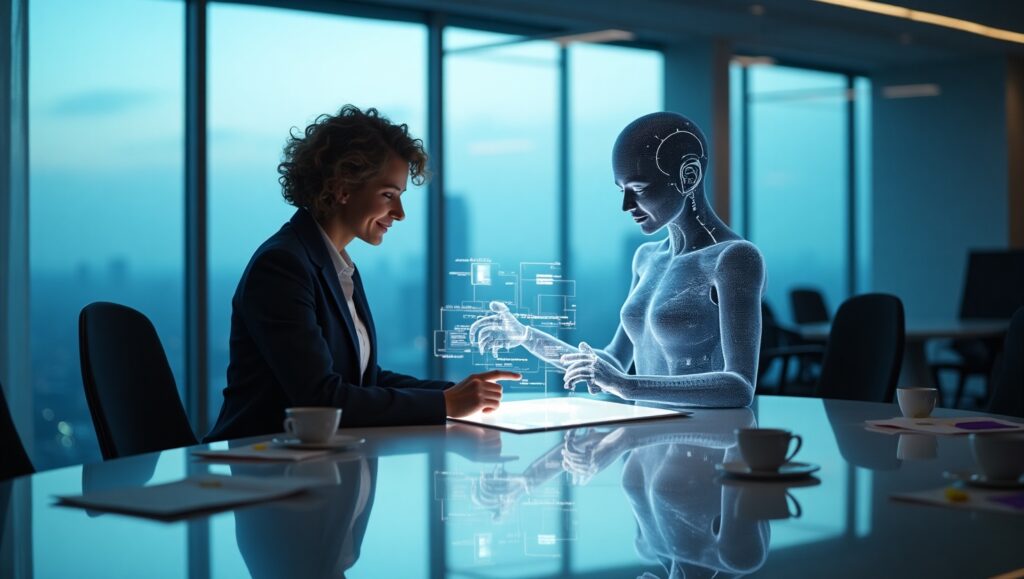
Let’s explore actionable strategies that will help you thrive in the AI-driven economy.
1. Embrace Lifelong Learning
🎓 Why It’s Important:
- AI and technology are evolving faster than ever—what’s relevant today might be obsolete tomorrow.
- Continuous learning keeps you ahead of industry trends and ensures you remain valuable to employers.
✅ Action Steps:
🔹 Take online courses on AI, data analysis, and emerging technologies.
🔹 Attend workshops, conferences, and networking events in your field.
🔹 Follow industry leaders and read tech and business news to stay informed.
📌 Key Tip: Prioritize skills that AI cannot easily replicate, such as critical thinking, creativity, and emotional intelligence.
2. Develop AI and Digital Skills
💻 Why It’s Important:
- AI is not just replacing jobs—it’s also creating new opportunities.
- Learning how to use AI as a tool can make you more efficient and valuable in your role.
✅ Action Steps:
🔹 Learn basic coding (Python, SQL, or JavaScript) to understand automation.
🔹 Master AI-powered tools like ChatGPT, Midjourney, and automation platforms.
🔹 Explore data analytics, cybersecurity, or machine learning basics—even if you’re not in tech.
📌 Key Tip: You don’t need to become an AI engineer, but understanding how AI works will set you apart in any profession.
3. Strengthen Human-Centric Skills
🤝 Why It’s Important:
- AI excels at data processing and automation, but it struggles with soft skills like emotional intelligence, leadership, and creativity.
- Employers will prioritize professionals who can effectively communicate, manage teams, and solve complex problems.
✅ Action Steps:
🔹 Develop communication, leadership, and negotiation skills.
🔹 Improve public speaking, storytelling, and emotional intelligence.
🔹 Take courses on creative problem-solving and strategic thinking.
📌 Key Tip: The most AI-proof jobs involve human interaction, ethical judgment, and innovation—focus on developing these skills.
4. Stay Adaptable and Open to Change
🔄 Why It’s Important:
- The future of work is unpredictable—resisting change will make it harder to succeed.
- Companies value employees who can quickly adapt to new technologies and evolving job roles.
✅ Action Steps:
🔹 Be open to upskilling and reskilling—don’t get stuck in one mindset.
🔹 Explore hybrid career paths that blend human expertise with AI-driven tools.
🔹 Stay curious and experiment with new technologies to expand your skill set.
📌 Key Tip: Flexibility is the new job security—those who embrace change will thrive.
5. Build a Strong Personal Brand
🌟 Why It’s Important:
- In a world where AI is automating jobs, standing out as an expert in your field is more crucial than ever.
- Having a strong online presence increases your chances of being noticed by top employers and industry leaders.
✅ Action Steps:
🔹 Optimize your LinkedIn profile and engage in industry discussions.
🔹 Create content in your field—write blogs, make videos, or share insights.
🔹 Network with thought leaders, recruiters, and professionals in your industry.
📌 Key Tip: AI can’t replace your unique voice, experience, and personal insights—use that to your advantage.
6. Explore Entrepreneurial and Freelance Opportunities
🚀 Why It’s Important:
- AI is changing traditional employment structures, but it’s also creating new ways to work independently.
- Being an entrepreneur or freelancer allows you to adapt faster than employees in rigid corporate structures.
✅ Action Steps:
🔹 Develop high-demand skills that allow you to work remotely or independently.
🔹 Use AI tools to automate and streamline your freelance work or business.
🔹 Explore new digital income streams like consulting, online courses, or e-commerce.
📌 Key Tip: Instead of fearing AI, use it to automate tasks and increase your productivity as an independent professional.
7. Work WITH AI, Not Against It
🤖 Why It’s Important:
- AI is here to stay, and resisting it will only put your career at risk.
- The most successful professionals will be those who know how to integrate AI into their workflow.
✅ Action Steps:
🔹 Learn how AI applies to your specific industry.
🔹 Use AI to increase your efficiency, not replace human expertise.
🔹 Become an AI advocate in your workplace, helping others embrace AI-driven tools.
📌 Key Tip: The future workforce isn’t AI vs. humans—it’s humans who know how to use AI vs. those who don’t.
Final Thoughts: Future-Proofing Is About Mindset, Not Just Skills
The most successful professionals of the AI era will not be those who fight automation, but those who adapt, learn, and innovate alongside AI. The key to future-proofing your career is developing a growth mindset, staying flexible, and continuously evolving.
🚀 Key Takeaways:
✅ Stay curious and always keep learning.
✅ Develop AI literacy and digital skills.
✅ Prioritize human-centric abilities like leadership and creativity.
✅ Be adaptable and open to new career opportunities.
✅ Build a strong professional brand and network.
💡 AI isn’t taking all the jobs—it’s taking the jobs of those who refuse to adapt. The question is: Will you be ready?
Would you like me to expand on any of these strategies or tailor them to a specific industry? 😊
Conclusion: Are You Next?
The rapid rise of AI isn’t just a futuristic concept—it’s happening right now. Jobs are being automated, industries are evolving, and the workforce is changing faster than ever before. The question isn’t whether AI will impact your career—it’s when and how.
🚨 Are you prepared for what’s coming?
If you’re stuck in a job that relies on repetitive tasks, predictable patterns, or outdated skills, you could be at serious risk of being replaced by AI sooner than you think. But don’t panic—you have a choice.
✅ You can resist AI and fall behind…
✅ Or you can embrace it, adapt, and future-proof your career.
The people who thrive in 2030 won’t be the ones who fight against AI—they’ll be the ones who learn how to work with it. They’ll be the ones who develop human-centric skills, leverage AI as a tool, and stay ahead of the curve.
💡 So, ask yourself:
➡️ Are you actively learning new skills, or are you waiting for change to force your hand?
➡️ Are you using AI to enhance your career, or are you ignoring its potential?
➡️ Are you adapting to the future, or are you at risk of becoming obsolete?
🚀 The choice is yours.
🔹 AI is here to stay. Will you evolve with it—or will you be next?
Read also: 5 AI-Powered Side Hustles That Can Make You $10,000/Month
